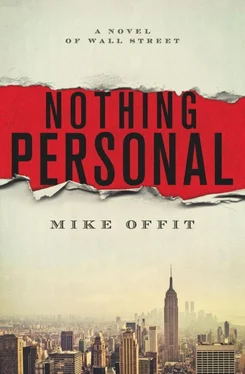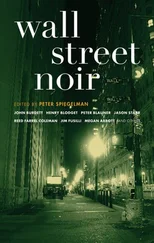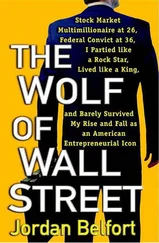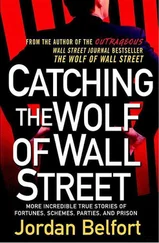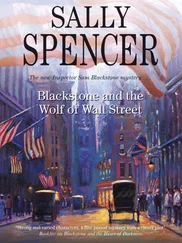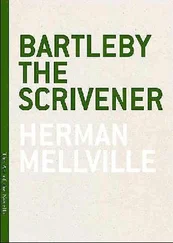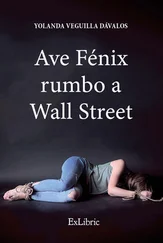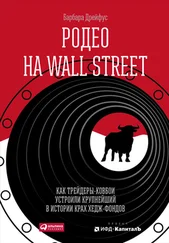“Easy, girl, easy. I’m gonna need that shoulder tomorrow.” He didn’t mind the game. Instead, he was intensely aroused.
“Earn it.”
He did, surprised that he had to use almost all his strength to break her hold. When he did, she was at him like an animal, tearing his clothes off, biting him, her breath short. He rolled on top of her, and she writhed under him, making him pin her to the bed with one arm while he jammed his right arm between her legs to hold her still long enough to slide inside her. He found a stamina he had not expected, and their instincts led to an almost desperate, violent coupling. When he finally lost control, she pushed him away, and his body arched, then collapsed, and he lay panting and sweating on the bed, the sheets a tangled mess, their clothes everywhere. He tried to think of something to say, but he could barely make a sound.
Larisa stretched alongside him, their breathing slowing at the same pace. Eventually, he reached for his shirt, to use as a towel, and she pulled him back and kissed him hard, then softened.
“You have a lot to learn, Warren Hament. But I’m a patient teacher.”
He kissed her back and said nothing, letting the endorphins and fatigue carry him away. Whatever she wanted to teach him, he was willing to learn.
The trip back from Florida at the end of the week had been full of anticipation. He had an amazing new girlfriend, and school was drawing to a close. The eighteen months had been a small part academic jawboning with the likes of Corelli, a fair amount of drudgery in accounting and math, and a bit of useful discussion, mostly in Sol Fisher’s finance class.
Fisher had been a senior investment banker and a partner at Goldman Sachs and retired to a full professorship at the Business School, his millions tucked away. His lectures lingered only briefly on the actual mechanics of finance and usually wound up in discussions that revealed the engine that drove Wall Street.
“It’s actually pretty simple,” Fisher had said in his first presentation. “A real investment bank simply acts as a conduit between big companies looking to raise capital and big institutions looking to invest it. Let’s say Ford Motor needs a couple hundred million bucks to build a plant in Wisconsin to make pickup trucks. In the old days, they’d go to Morgan Bank or Chase Manhattan for a loan. And the banks would make a big spread, since they were the only game in town, and their source of money was cheap deposits by their customers. Then, investment banks stepped in. We’d tell Ford we could get them the money a couple of percent cheaper, by selling bonds. Or virtually free, by selling stock. So, we’d go to the big pension funds and insurance companies and peddle Ford bonds, or Ford stock, and they’d save a mint versus borrowing from the banks. The investors were happy because they got the bonds of a topflight company and got to earn more interest than they could get from US treasuries or by depositing it. We’d earn a big fee. Then, we’d excite the investors even more by being willing to trade those bonds. That made it possible for them to sell the bonds if they didn’t want to keep them, or to buy more, or swap them for something else they liked better. Suddenly, investment bank traders were buying and selling Ford, Chrysler, AT and T, you name it. Our bankers, who advised the borrowers, got paid big fees. Our traders made money. The investors got choices and liquidity.”
“But isn’t that too simple?” One of the front-row students had raised his hand. “Wouldn’t all the investment banks compete for the same business, and wouldn’t that competition take the profits out of it?”
“Good question. That’s the force that makes it more difficult to be an investment banker today than ten years ago. Competition. Brutal, backstabbing competition. The only way to win is to be smarter, come up with trickier ways to raise the money and shave a few hundredths of a percent off the cost of borrowing that money. Structured finance, it’s called. Bonds with warrants to buy stock, stock that pays interest like bonds, stock that isn’t equity, bonds that aren’t really debt, bonds that pay interest with more bonds—whatever!
“Some of the companies stress trading—willingness to commit a lot of their own money. Others focus on making customers happy—a relationship backed up with lots of greenbacks. Whatever gets you over. Lots of drinks and dinners, ball games, and golf outings. But it pays. There are twenty-eight-year-olds at Morgan Stanley or Weldon Brothers making a million dollars a year, for God’s sake. And the irony is, every single one of them thinks he’s underpaid !”
That kind of talk was incendiary in a room full of students of the higher forms of capitalism. Many who hadn’t thought about a career at an investment bank realized they could have a shot at making much more money there than in the industries they were working in before business school, and much more quickly. Of the graduates in that year’s class, 60 percent would apply to Goldman Sachs, and only two or three would be offered a spot.
“Of course, nowadays, there’s a lot more to it than just raising money for big industrial companies,” Fisher continued. “There’s junk bonds, which are used to raise money for dicier companies. There’s foreign-currency bonds, derivatives. And then there’s the whole mortgage-backed securities markets.”
“Isn’t that the Ginnie Mae market?” a front row voice piped in.
“Yes. That’s one part of it. Ginnie Mae is one government agency that guarantees mortgages against default, so investors can buy them with no credit risk. Mortgages are a lot more difficult to figure out than most bonds, though. When a company sells a bond, they agree to pay interest on it for ten or twenty years and not pay it off, or ‘call’ it, for most of that time. A call is when the bond can be repaid by the company that sold it after a certain amount of time, but before its maturity. That way, if the company can borrow less expensively, they pay off the higher-interest-rate bonds and sell new, lower-interest-rate bonds.
“But, unlike most corporate or treasury bonds, which can’t be called for a long time, most mortgages can be prepaid at any time, if the borrowers refinance, or the houses are sold or burn down, or even if the borrower defaults and the government or insurance companies step in and pay back the lender. So the securities can be called away. This has a big effect on their value because the investors who bought the mortgages can get their money back when interest rates are much lower, and that’s bad, or even when rates are much higher, which is really good. So, people trade them around a lot, always trying to stay a step ahead of prepayment risk. The firms that have good research and analytics on prepayments get a lot of business from the biggest investors—pension funds and big-money managers. Someday soon, you’re going to see Wall Street invent ways to make big bucks off that risk. But that’s another course altogether.”
After class, Warren met Larisa for lunch. It was a warm day, and they sat on the steps of Uris Hall. She had brought a sandwich with her, and Warren grabbed a cup of clam chowder from the student snack bar across the green.
“Fisher’s class this morning was really good,” he said, slurping a little.
“Wait. What? Who are you? You actually enjoyed a class? Where is my boyfriend, and what have you done with him?” Her upper lip curled under when she smiled, and Warren couldn’t resist bending over and giving her a kiss.
“Umm. Onions in the tuna. Yummy!… Yeah, he was talking about mortgage-backed securities trading at the Wall Street firms, and it sounds like something I might really like. I didn’t know that kind of thing even existed.” He was serious, his eyebrows even a little furrowed.
Читать дальше
